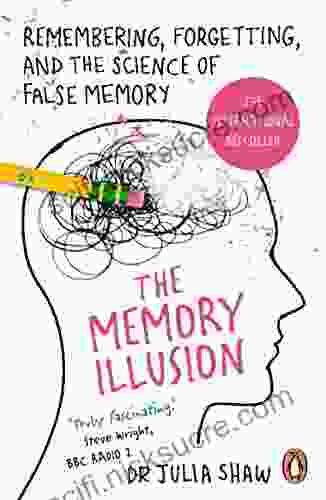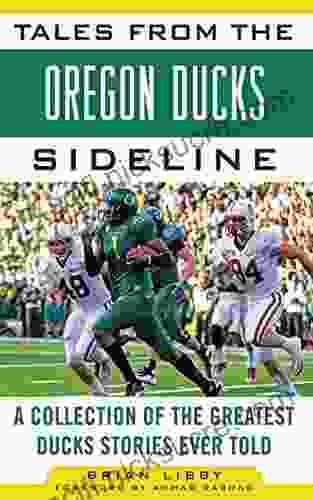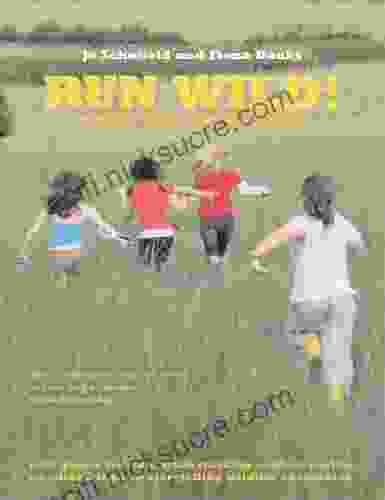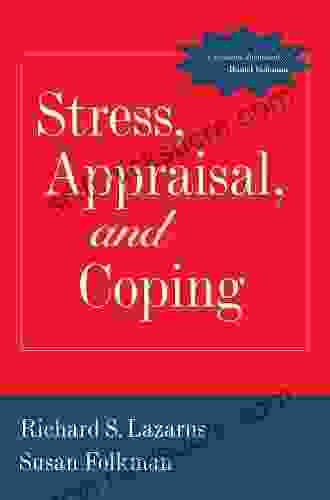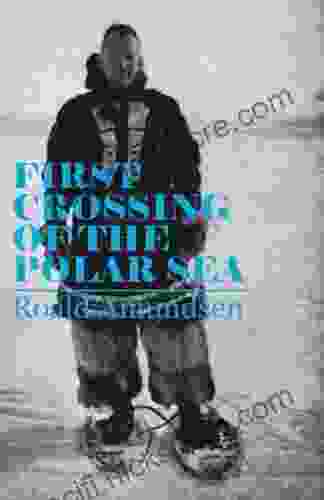Remembering, Forgetting, and the Science of False Memory

Memory is a fundamental aspect of human cognition that allows us to store and retrieve information about our experiences. It is essential for our ability to learn, navigate our environment, and interact with others. However, memory is not a perfect system, and it is subject to a variety of distortions and errors.
4.6 out of 5
| Language | : | English |
| File size | : | 2987 KB |
| Text-to-Speech | : | Enabled |
| Screen Reader | : | Supported |
| Enhanced typesetting | : | Enabled |
| Word Wise | : | Enabled |
| Print length | : | 319 pages |
One of the most fascinating and counterintuitive aspects of memory is the phenomenon of forgetting. We all forget things from time to time, from the names of people we met to the details of our past experiences. Forgetting can be frustrating, but it is also a natural part of the memory process. It helps us to declutter our minds and focus on the information that is most important to us.
While forgetting is a normal part of memory, it can also lead to the formation of false memories. A false memory is a memory of an event that never actually happened. False memories can be very convincing, and they can be just as vivid and detailed as real memories.
There are a number of factors that can contribute to the formation of false memories, including:
- Leading questions: When we are asked leading questions, we are more likely to recall information that is consistent with the suggestion in the question, even if that information is incorrect.
- Misinformation: When we are exposed to misinformation after an event, we may incorporate that misinformation into our memory of the event.
- Imagination: Sometimes, we can create false memories simply by imagining an event happening. This can be particularly likely to happen if we are asked to imagine the event in great detail.
False memories can have a significant impact on our lives. They can lead to wrongful convictions, damage relationships, and even cause psychological distress. It is important to be aware of the factors that can contribute to the formation of false memories, and to be critical of our own memories.
The study of false memory is a relatively new field, but it has already made significant progress in understanding how false memories are formed and how they can be distinguished from real memories. This research has the potential to have a major impact on our understanding of memory and its role in our lives.
How to Identify False Memories
There are a number of ways to identify false memories, including:
- Lack of corroborating evidence: False memories are often not supported by other evidence, such as eyewitness testimony or physical evidence.
- Inconsistent details: False memories may contain details that are inconsistent with other known facts about the event.
- Emotional intensity: False memories are often more emotionally intense than real memories.
- Source confusion: False memories may be confused with memories from other events or sources.
It is important to note that not all memories that lack corroborating evidence or contain inconsistent details are false memories. However, these factors can be red flags that indicate the need for further investigation.
How to Avoid False Memories
There are a number of things you can do to avoid forming false memories, including:
- Be aware of the factors that can contribute to the formation of false memories.
- Be critical of your own memories.
- Do not rely solely on your memory when making important decisions.
- Talk to other people about your memories.
- Keep a journal or diary to record your experiences.
By following these tips, you can help to reduce the likelihood of forming false memories.
Memory is a complex and fascinating process that is essential for our ability to function in the world. However, it is important to be aware of the limitations of memory and to be critical of our own memories. By ng so, we can help to avoid the pitfalls of false memory and ensure that our memories are accurate and reliable.
4.6 out of 5
| Language | : | English |
| File size | : | 2987 KB |
| Text-to-Speech | : | Enabled |
| Screen Reader | : | Supported |
| Enhanced typesetting | : | Enabled |
| Word Wise | : | Enabled |
| Print length | : | 319 pages |
Do you want to contribute by writing guest posts on this blog?
Please contact us and send us a resume of previous articles that you have written.
 Fiction
Fiction Non Fiction
Non Fiction Romance
Romance Mystery
Mystery Thriller
Thriller SciFi
SciFi Fantasy
Fantasy Horror
Horror Biography
Biography Selfhelp
Selfhelp Business
Business History
History Classics
Classics Poetry
Poetry Childrens
Childrens Young Adult
Young Adult Educational
Educational Cooking
Cooking Travel
Travel Lifestyle
Lifestyle Spirituality
Spirituality Health
Health Fitness
Fitness Technology
Technology Science
Science Arts
Arts Crafts
Crafts DIY
DIY Gardening
Gardening Petcare
Petcare Jack Whyte
Jack Whyte Tracy Moore
Tracy Moore Jennifer L Lopez
Jennifer L Lopez William Spencer
William Spencer Christine Lion
Christine Lion Jennie Naidoo
Jennie Naidoo Jill Margaret Shulman
Jill Margaret Shulman James R Evans
James R Evans Dr Barbara Sorrels
Dr Barbara Sorrels Michael Eric Dyson
Michael Eric Dyson Daniel Kahneman
Daniel Kahneman Nurse Academy
Nurse Academy Phillip Stephen Schulz
Phillip Stephen Schulz Fiona Danks
Fiona Danks Philip Slayton
Philip Slayton Brittany Noelle
Brittany Noelle Paula Petrella
Paula Petrella J M Hofer
J M Hofer Lawrence M Krauss
Lawrence M Krauss Karen Ehman
Karen Ehman Staff Of The Harvard Crimson
Staff Of The Harvard Crimson Serena Williams
Serena Williams Mary Beard
Mary Beard Michael Loynd
Michael Loynd Michelle Garnett
Michelle Garnett James Morgan Ayres
James Morgan Ayres Paddy Ashdown
Paddy Ashdown Kevin C Kelleher Md Md
Kevin C Kelleher Md Md Carol Mccloud
Carol Mccloud Kathryn Mcelroy
Kathryn Mcelroy Ted Kerasote
Ted Kerasote Mark W Gaither
Mark W Gaither Robert Fisher
Robert Fisher Malcolm Williams
Malcolm Williams Jason R Briggs
Jason R Briggs Booksumo Press
Booksumo Press James Oseland
James Oseland Tom Bisio
Tom Bisio Joe Tasker
Joe Tasker Brendan Donley
Brendan Donley Ed Gruver
Ed Gruver Darwin V Ellis
Darwin V Ellis Rand Cardwell
Rand Cardwell Diane Ravitch
Diane Ravitch Elizabeth Bishop
Elizabeth Bishop Julia Englund Strait Phd
Julia Englund Strait Phd Bridie Gallagher
Bridie Gallagher Asaf Rozanes
Asaf Rozanes Scott Wilson
Scott Wilson N M J Woodhouse
N M J Woodhouse Corinne Brown
Corinne Brown Rachel Burgess
Rachel Burgess Jim Murphy
Jim Murphy Dr Aviva Legatt
Dr Aviva Legatt Laura Freberg
Laura Freberg Bob Gaines
Bob Gaines Blessing Agunloye
Blessing Agunloye Kelly Koerner
Kelly Koerner Lola Glass
Lola Glass Daniel Friebe
Daniel Friebe Logan Thompson
Logan Thompson Melissa Marr
Melissa Marr Raymond Barrett
Raymond Barrett David L Cook
David L Cook Chantal Sicile Kira
Chantal Sicile Kira Melissa Gomes
Melissa Gomes Rob Walker
Rob Walker Kayvan Shokrollahi
Kayvan Shokrollahi Jennifer Pastiloff
Jennifer Pastiloff Monica Mcgoldrick
Monica Mcgoldrick Jimmy Roberts
Jimmy Roberts Holly Black
Holly Black Matt Harrison
Matt Harrison Xiran Jay Zhao
Xiran Jay Zhao Immigration Consult
Immigration Consult Maia Weinstock
Maia Weinstock Jack Cavanaugh
Jack Cavanaugh 1st Ed 2020 Edition Kindle Edition
1st Ed 2020 Edition Kindle Edition Dan Gable
Dan Gable Jonathan Howard Md
Jonathan Howard Md Marc Silver
Marc Silver Tania Aebi
Tania Aebi Eduardo Montano
Eduardo Montano Nando Parrado
Nando Parrado Django Wexler
Django Wexler Charles Hooton
Charles Hooton Jim Thompson
Jim Thompson Summer Batte
Summer Batte Philip Kramer
Philip Kramer Jennifer Boyle
Jennifer Boyle Priscilla T Brown
Priscilla T Brown James Mooney
James Mooney John Sabino
John Sabino Fodor S Travel Guides
Fodor S Travel Guides Jakub Marian
Jakub Marian Julie Dubrouillet
Julie Dubrouillet Julie Des Jardins
Julie Des Jardins Yaron Seidman
Yaron Seidman Lee Mcintyre
Lee Mcintyre Brian Libby
Brian Libby Zola Levitt
Zola Levitt 1st Ed 2019 Edition Kindle Edition
1st Ed 2019 Edition Kindle Edition Kiera Cass
Kiera Cass Lyn Millner
Lyn Millner Detlev Piltz
Detlev Piltz Lou Kasischke
Lou Kasischke David Wescott
David Wescott Paul Orland
Paul Orland Lieven Vandenberghe
Lieven Vandenberghe Dan Hamilton
Dan Hamilton Second Edition New Edition Updated Revised...
Second Edition New Edition Updated Revised... Theodore Gray
Theodore Gray Grace Elizabeth Hale
Grace Elizabeth Hale Antti Laaksonen
Antti Laaksonen Jen Rose Smith
Jen Rose Smith Gregg Michaelsen
Gregg Michaelsen Tao Le
Tao Le Martin Toms
Martin Toms Daphne Adler
Daphne Adler Borja Loma Barrie
Borja Loma Barrie Sigmund Freud
Sigmund Freud Julie Kratz
Julie Kratz Lynn E Ponton
Lynn E Ponton Laura J Snyder
Laura J Snyder Jodi Magness
Jodi Magness Lianna Marie
Lianna Marie Sally Moran
Sally Moran Wendy Suzuki
Wendy Suzuki Stuart Firestein
Stuart Firestein Jeff Carreira
Jeff Carreira Joanna Breyer
Joanna Breyer Helen Corcoran
Helen Corcoran Charmaine Mckissock
Charmaine Mckissock Brian Zepka
Brian Zepka Shane Burcaw
Shane Burcaw Mark E Johnson
Mark E Johnson Hugh Marriott
Hugh Marriott James Mcmullan
James Mcmullan Karen Le Billon
Karen Le Billon Herbert Wolverson
Herbert Wolverson Luisa Magarian
Luisa Magarian Robert Courland
Robert Courland Peter Byrne
Peter Byrne Diondre Mompoint
Diondre Mompoint Ed Viesturs
Ed Viesturs Deirdre A Scaggs
Deirdre A Scaggs Scarlett Thomas
Scarlett Thomas Derek Cheung
Derek Cheung N L Mclaughlin
N L Mclaughlin Becca Anderson
Becca Anderson Tiffany Vincent
Tiffany Vincent Jessica Mayer Koren
Jessica Mayer Koren Marc P Steinberg
Marc P Steinberg Richard Bach
Richard Bach David Sammel
David Sammel Kindle Edition
Kindle Edition Hecateus Apuliensis
Hecateus Apuliensis Robert J Sternberg
Robert J Sternberg Mary J Macleod
Mary J Macleod Katherine Roberts
Katherine Roberts Kazumi Tabata
Kazumi Tabata Joe Hendershott
Joe Hendershott Leigh Calvez
Leigh Calvez Brad Walker
Brad Walker Su Ad Abdul Khabeer
Su Ad Abdul Khabeer Zach Alexander
Zach Alexander Michael R Canfield
Michael R Canfield Randall M Rueff
Randall M Rueff Camille Soulier
Camille Soulier Cheryl Marlene
Cheryl Marlene Jeannie Tyrrell
Jeannie Tyrrell Elena Kryuchkova
Elena Kryuchkova Richard Grant
Richard Grant Leah Hager Cohen
Leah Hager Cohen Bruce Kershner
Bruce Kershner United States Government Us Army
United States Government Us Army Lisa Takeuchi Cullen
Lisa Takeuchi Cullen Tiffany Loggins Psyd
Tiffany Loggins Psyd Robert Young Pelton
Robert Young Pelton Diane Sticks Harsha
Diane Sticks Harsha Bradley Mayhew
Bradley Mayhew Linda Fairley
Linda Fairley Eva Ibbotson
Eva Ibbotson John Andrisani
John Andrisani Nicholas Bjorn
Nicholas Bjorn Derek Johnson
Derek Johnson Smart Reads
Smart Reads David Cockburn
David Cockburn Shaana Berman
Shaana Berman Pat Harvey
Pat Harvey Michele Riva
Michele Riva Teresa Denton
Teresa Denton Aaron Oster
Aaron Oster Dr Ray Makar
Dr Ray Makar Jerry Darkes
Jerry Darkes Nick Muxlow
Nick Muxlow Karen George
Karen George Laurence D Houlgate
Laurence D Houlgate Chris Cheng
Chris Cheng Lily Field
Lily Field Jennifer Niven
Jennifer Niven Lowell Skoog
Lowell Skoog L Waxy Gregoire
L Waxy Gregoire Chuck Carlson
Chuck Carlson Bob Forman
Bob Forman Jayne Storey
Jayne Storey Joni Levine
Joni Levine John Skinner
John Skinner Greg Mcmillan
Greg Mcmillan Mia Reyes
Mia Reyes Michael Kodas
Michael Kodas Christie Aschwanden
Christie Aschwanden Mantak Chia
Mantak Chia Charles H Townes
Charles H Townes Gao Yisheng
Gao Yisheng Graham Denton
Graham Denton Catherine Ryan Gregory
Catherine Ryan Gregory Tehlor Kay Mejia
Tehlor Kay Mejia Selma H Fraiberg
Selma H Fraiberg Jennifer Mccully
Jennifer Mccully Mami Wata
Mami Wata Felix Bittmann
Felix Bittmann Sevki Kuruoglu
Sevki Kuruoglu Nancy H Diepenbrock
Nancy H Diepenbrock Rick Sapp
Rick Sapp John V Petrocelli
John V Petrocelli Tom Stienstra
Tom Stienstra Don Currie
Don Currie Christopher Setterlund
Christopher Setterlund James Kaiser
James Kaiser Haruki Murakami
Haruki Murakami Greg Wolfe
Greg Wolfe Nfhs
Nfhs Carrie Rogers Whitehead
Carrie Rogers Whitehead Lewis Howes
Lewis Howes Michael Inden
Michael Inden Bob Morris
Bob Morris Sifu Slim
Sifu Slim Bob Thomas
Bob Thomas Loralee Leavitt
Loralee Leavitt Jacqueline Kelleher
Jacqueline Kelleher George G Morgan
George G Morgan William Shakespeare
William Shakespeare Mike Evans
Mike Evans Alan Anderson
Alan Anderson Sergey K Aityan
Sergey K Aityan Rohan Agarwal
Rohan Agarwal Ian Tuhovsky
Ian Tuhovsky David Christian
David Christian Ricardo Pompa
Ricardo Pompa William Pitts
William Pitts Steven A Finkler
Steven A Finkler Tania Marshall
Tania Marshall Glen Mourning
Glen Mourning Taste Of Home
Taste Of Home Pedro Urvi
Pedro Urvi Carlo Zen
Carlo Zen Bobbi Conner
Bobbi Conner Frank Giampaolo
Frank Giampaolo Art Smith
Art Smith Bill Nowlin
Bill Nowlin Jessica Holsman
Jessica Holsman Cal Pater
Cal Pater House Of Talent
House Of Talent Kim Heldman
Kim Heldman Fr Vincent Lampert
Fr Vincent Lampert 1st Ed 2021 Edition Kindle Edition
1st Ed 2021 Edition Kindle Edition John Mccollister
John Mccollister Bob Harig
Bob Harig Matt Davids
Matt Davids Barry Lewis
Barry Lewis Cindy C Bennett
Cindy C Bennett Tom Billinge
Tom Billinge Craig Callender
Craig Callender Scott Waldie
Scott Waldie Steven Trustrum
Steven Trustrum Lynn Rosen
Lynn Rosen Elena Lawson
Elena Lawson Megan Miller
Megan Miller Sam Dogra
Sam Dogra Kristin Plain
Kristin Plain Monica Gribben
Monica Gribben Ruth M Tappen
Ruth M Tappen Bruce Sutherland
Bruce Sutherland Robert T Kiyosaki
Robert T Kiyosaki Karen Gershowitz
Karen Gershowitz Zecharia Sitchin
Zecharia Sitchin Michael Conway
Michael Conway Gordon H Chang
Gordon H Chang Terry Mcmillan
Terry Mcmillan Susanna Heli
Susanna Heli Carol A Dahir
Carol A Dahir Terri Jean
Terri Jean Sylvia Mercedes
Sylvia Mercedes Angela Stevens
Angela Stevens Dave Pine
Dave Pine Bradley Garrett
Bradley Garrett Cecilia Chrapkowska
Cecilia Chrapkowska Ronald D Mcelroy
Ronald D Mcelroy Harmon Cooper
Harmon Cooper Kenneth C Roebuck
Kenneth C Roebuck Peter Nabokov
Peter Nabokov Alan Pearce
Alan Pearce Sacha Koborsi Tadros
Sacha Koborsi Tadros Robert T Pennock
Robert T Pennock Luke Humphrey
Luke Humphrey David Murray
David Murray Kevin Williams
Kevin Williams Collegiate Learning
Collegiate Learning Ceara Comeau
Ceara Comeau Tara Lazar
Tara Lazar Steve Leonard
Steve Leonard Bill Nason
Bill Nason Jill Krause
Jill Krause Mark Rashid
Mark Rashid Lewis Smile
Lewis Smile Lynn A Struve
Lynn A Struve Hettie Brittz
Hettie Brittz 1st Edition Kindle Edition
1st Edition Kindle Edition Peter Mcdougall
Peter Mcdougall Lewis Morris
Lewis Morris Daniel Isberner
Daniel Isberner Iskcon Revival Movement
Iskcon Revival Movement Russell Bryant
Russell Bryant Cliff Jacobson
Cliff Jacobson James Lovegrove
James Lovegrove Bob Brister
Bob Brister Print Replica Kindle Edition
Print Replica Kindle Edition Tom Mccoy
Tom Mccoy Tony Hansen
Tony Hansen Timothy Alberino
Timothy Alberino Mones Abu Asab
Mones Abu Asab Jason Thalken
Jason Thalken Gary Letcher
Gary Letcher John Gierach
John Gierach Ron Woldoff
Ron Woldoff Nate Schweber
Nate Schweber S Connolly
S Connolly Elizabeth Hay
Elizabeth Hay Candace Walsh
Candace Walsh Roland Nyns
Roland Nyns Sheila Willcox
Sheila Willcox Silvan S Schweber
Silvan S Schweber Ross Mccluney
Ross Mccluney Jimmy Cornell
Jimmy Cornell Brenda Hiatt
Brenda Hiatt Marion Zimmer Bradley
Marion Zimmer Bradley Eric R Dodge
Eric R Dodge Richard J Foster
Richard J Foster Doris Pilkington
Doris Pilkington John Horgan
John Horgan Michael Hoy
Michael Hoy Connecticut Forest And Park Association
Connecticut Forest And Park Association Rachel Marie Martin
Rachel Marie Martin Tracy Deonn
Tracy Deonn Brook Waters
Brook Waters Josephine Diebitsch Peary
Josephine Diebitsch Peary David Seidman
David Seidman Michael Kulikowski
Michael Kulikowski Jared Hargrave
Jared Hargrave Larry Pardey
Larry Pardey Robin Moore
Robin Moore Leo Baker
Leo Baker Diane Ehrensaft
Diane Ehrensaft Bob Meehan
Bob Meehan Sherman Alexie
Sherman Alexie Clinton Dobbins
Clinton Dobbins Rinoa
Rinoa Patrisia Gonzales
Patrisia Gonzales Jody Hedlund
Jody Hedlund Emma Fick
Emma Fick Jane Watkins
Jane Watkins Three Over Eight Learning
Three Over Eight Learning Francis Jonah
Francis Jonah Mathew Tekulsky
Mathew Tekulsky Curt Sampson
Curt Sampson Pamela A Hays
Pamela A Hays Dan Wowak
Dan Wowak Stephen Armstrong
Stephen Armstrong Oluwatosin Adebanjo Ore
Oluwatosin Adebanjo Ore Joseph Campbell
Joseph Campbell William R Miller
William R Miller Tim Swanwick
Tim Swanwick Jim Wilson
Jim Wilson James Atkinson
James Atkinson Jacob Paul Patchen
Jacob Paul Patchen Ed Palattella
Ed Palattella Rod Baker
Rod Baker Bob Miller
Bob Miller Fran Davis
Fran Davis Matthew Cronin
Matthew Cronin Mahzarin R Banaji
Mahzarin R Banaji Language Guru
Language Guru Matthias Biehl
Matthias Biehl Lisa Mckay
Lisa Mckay Julietta Suzuki
Julietta Suzuki David Mayer
David Mayer Sandra Brown
Sandra Brown Jane Adams
Jane Adams David Franklin
David Franklin Richard Williams
Richard Williams Ziya Tong
Ziya Tong Jack Henderson
Jack Henderson Peter Ralston
Peter Ralston Fred Medina
Fred Medina James Duggan
James Duggan Roger Kopanycia
Roger Kopanycia Stephanie J Scott
Stephanie J Scott Martin Gardner
Martin Gardner George M Church
George M Church Norm Flayderman
Norm Flayderman Jason Brown
Jason Brown Theodore Dalrymple
Theodore Dalrymple Richard Headstrom
Richard Headstrom National Fastpitch Coaches Association
National Fastpitch Coaches Association Culture Smart
Culture Smart Jorge Croda
Jorge Croda Peter N Peregrine
Peter N Peregrine Luke Jackson
Luke Jackson Simeon Wright
Simeon Wright Breann Blehm
Breann Blehm Mark Vonnegut
Mark Vonnegut Tobias Macey
Tobias Macey Robert Farris Thompson
Robert Farris Thompson Raghuram Rajan
Raghuram Rajan Philip A Moore
Philip A Moore Sian O Gorman
Sian O Gorman Dinesh Kumar Goyal
Dinesh Kumar Goyal Kevin Ticen
Kevin Ticen Marley Dias
Marley Dias Jerry A Coyne
Jerry A Coyne Nicole Howard
Nicole Howard Katherine A Dettwyler
Katherine A Dettwyler Charles Johnson
Charles Johnson Paul Bellow
Paul Bellow Sleiman Azizi
Sleiman Azizi Huan Yang
Huan Yang Haider Warraich
Haider Warraich Nikki Glandon
Nikki Glandon Donald Hanley
Donald Hanley Janet Evanovich
Janet Evanovich Christian Smith
Christian Smith Guy Gavriel Kay
Guy Gavriel Kay Lori Foster
Lori Foster Maggie Smith
Maggie Smith Sharon M Ravitch
Sharon M Ravitch George Heineman
George Heineman Julia Shaw
Julia Shaw Bob Motley
Bob Motley
Light bulbAdvertise smarter! Our strategic ad space ensures maximum exposure. Reserve your spot today!

 Eugene Scott2024 Study Guide with All Official USCIS Civics Questions and Answers for the...
Eugene Scott2024 Study Guide with All Official USCIS Civics Questions and Answers for the... Clarence MitchellFollow ·15.7k
Clarence MitchellFollow ·15.7k William WordsworthFollow ·18k
William WordsworthFollow ·18k Stuart BlairFollow ·3k
Stuart BlairFollow ·3k Alex ReedFollow ·2.6k
Alex ReedFollow ·2.6k David MitchellFollow ·11.1k
David MitchellFollow ·11.1k Diego BlairFollow ·16.4k
Diego BlairFollow ·16.4k Corey HayesFollow ·16k
Corey HayesFollow ·16k Oliver FosterFollow ·13k
Oliver FosterFollow ·13k
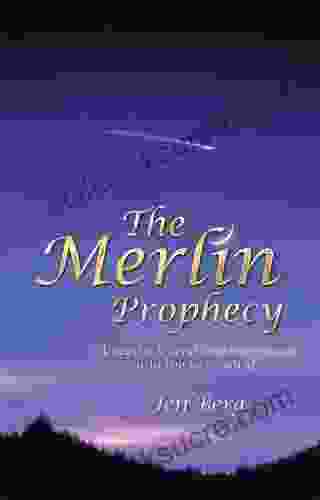
 Dennis Hayes
Dennis HayesMystic Legend and His Epic Crusade Into the New World: A...
The story of Mystic Legend is...
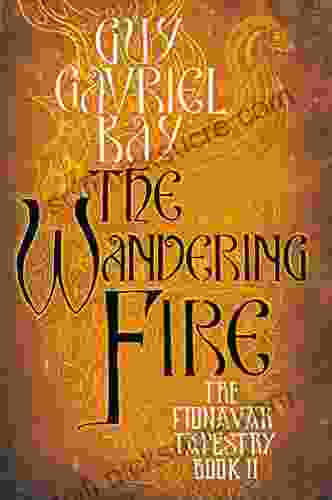
 Braden Ward
Braden WardThe Wandering Fire: A Captivating Fantasy Epic in the...
: A Realm of Enchantment and...
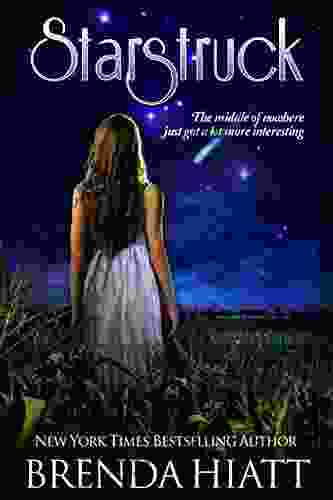
 Nathaniel Hawthorne
Nathaniel HawthorneStarstruck Brenda Hiatt: A Journey to Stardom
Brenda Hiatt's journey to...
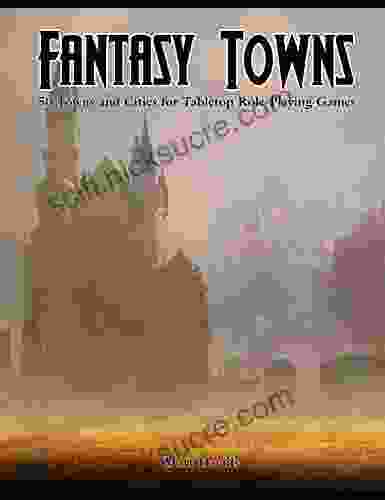
 Clark Campbell
Clark Campbell50 Enchanting Towns and Cities for Your Fantasy Tabletop...
Are you a dungeon master looking for the...

 W.B. Yeats
W.B. Yeats15 Natural Ways to Fix PCOS (Polycystic Ovary Syndrome)
Polycystic ovary syndrome (PCOS) is a hormonal...
4.6 out of 5
| Language | : | English |
| File size | : | 2987 KB |
| Text-to-Speech | : | Enabled |
| Screen Reader | : | Supported |
| Enhanced typesetting | : | Enabled |
| Word Wise | : | Enabled |
| Print length | : | 319 pages |


